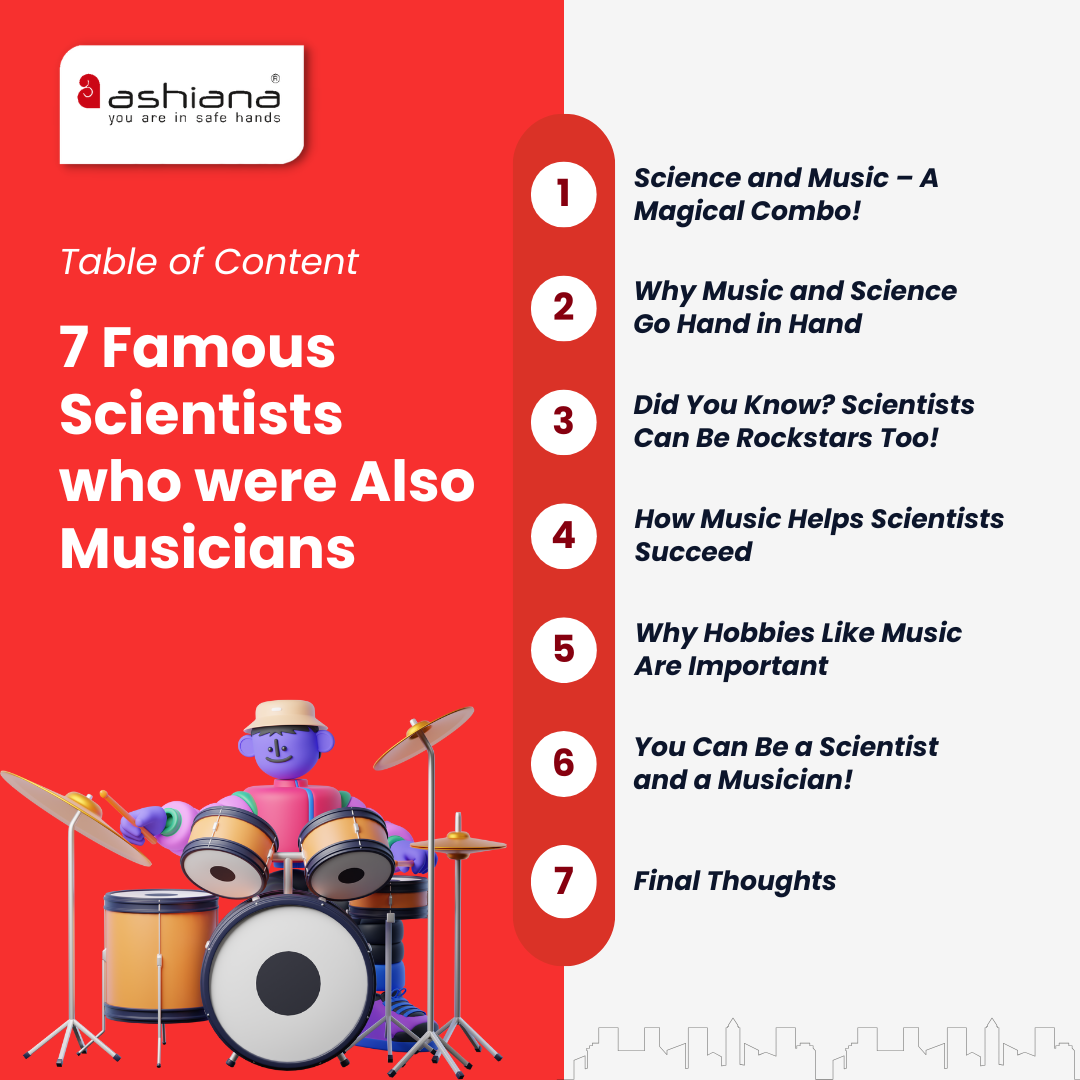

Absolutely! Many famous scientists like Albert Einstein and Brian May have shown that it’s possible to excel in both fields. Music can be a relaxing and inspiring hobby that complements a scientist’s analytical work.
Music boosts creativity, improves focus, and relieves stress, all of which are essential for problem-solving in science. Many famous scientists have credited music for helping them think clearly and innovatively.
Hobbies like music teach valuable life skills such as discipline, time management, and teamwork. They also provide a creative outlet, boost confidence, and make learning fun, helping kids grow into well-rounded individuals.
Ashiana, Ashiana Housing build homes. Homes surrounded by vast green spaces and fresh breeze. Homes cocooned in secured gated complexes. Homes where futures are forged and there are opportunities to grow. And Homes in environments brimming with healthy activity, trust and respect. At heart, we build communities with care.
Other posts by Ashiana
Join 1000+ of fellow readers. Get expert real estate knowledge straight to your inbox absolutely free. Just enter your email address below.